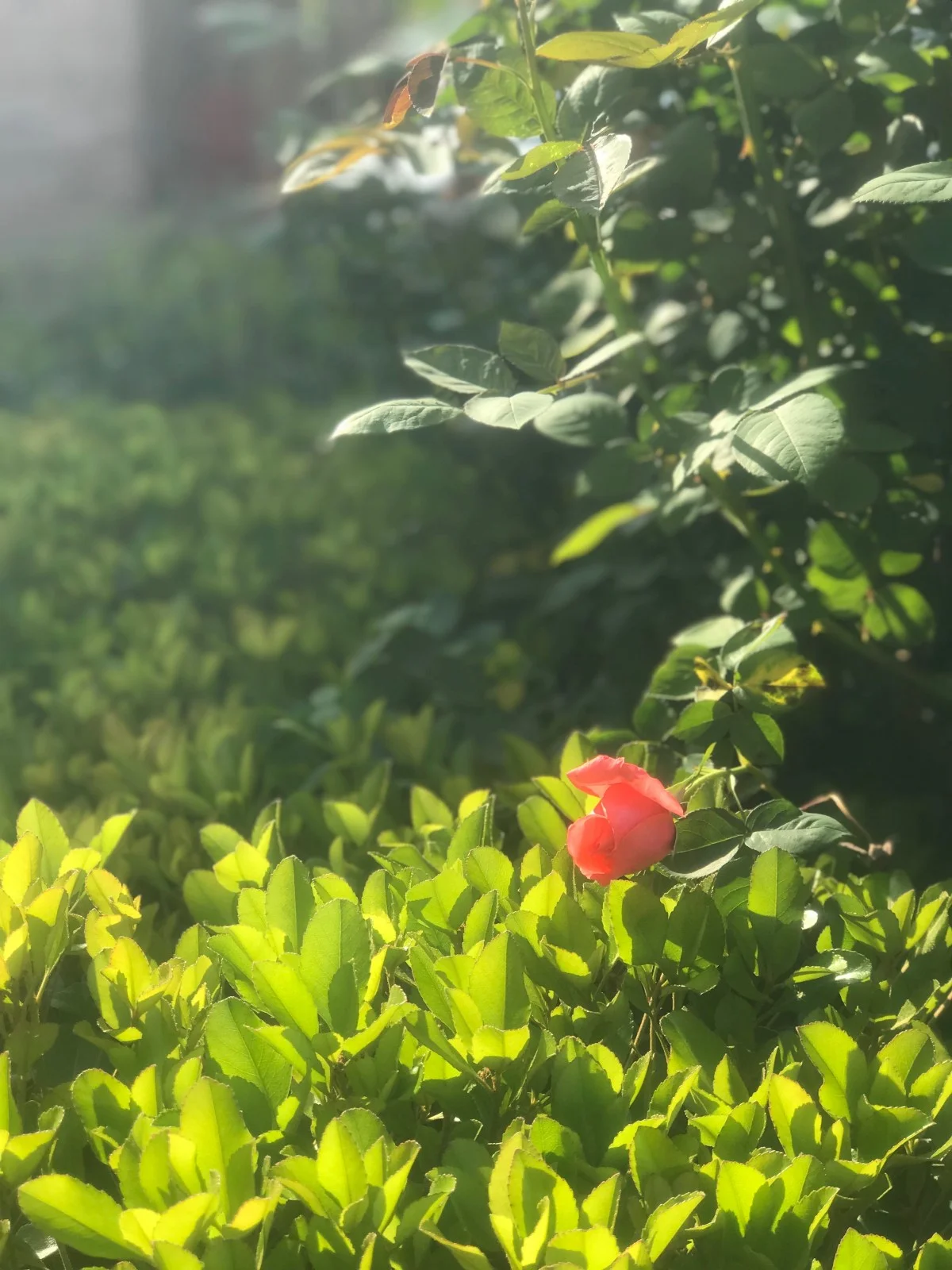A Modern Lamentation
My name is Laura Byrd, and I am a widow. No, that isn’t necessarily how I usually introduce myself, but it is a label that I have used for myself for the last 1 year, 6 months, 1 week, and 2 days of life since my late husband has been gone. This word, widow, has always made me feel uncomfortable. I didn’t like the stereotypes that came with it, and I wasn’t quite sure of what that made me now. What does it mean that I’m a widow? The way our culture sees widows doesn’t seem to reconcile with the person I have claimed to be in this life. Was I now all of a sudden a Marvel super hero spy character, like that of the Black Widow in the Avengers movies? Maybe I was more like that of the stereotypical widow, so explicitly revealed to me through a stock photo image of a widow: a lone woman with black on, white lilies in her hand, crying. That wasn’t me either. Most frighteningly, I was worried that it might be an image even more terrifying for my eyes to behold, captured most poignantly in Jacob Kapkov’s piece of artwork Widow.[2] A single woman surrounded by darkness, her head bowed in grief: broken, alone, seemingly helpless. This image was a reflection of my biggest fears and sense of shame my newfound title put upon me. It felt like I had done something to deserve this punishment of deep grief. Yet it is now part of who I am. It is a facet of my identity.
Yakov Kapkov, Widow, 1851, Oil and Canvas, National Art Museum of Ukraine, Kiev
I remember when I was shopping for a dress to wear to my husband’s memorial service. I was walking into the department store Dillard’s and distinctly remember talking to him, thinking, I don’t know what to do. There is nothing that looks right on me. Everything makes me look like a sad widow and I don’t want to be a sad widow. I just want to be me. It hit me pretty hard, the voice in my head, his voice. Who cares what you wear? Just be you. Tears pricked my eyes as I was standing in the middle of all the dresses. I knew he was right and even though I couldn’t shout at him, I wanted so badly to shout: because I don’t want this. I don’t want to be shopping for a dress to wear to your funeral. I just want you alive again. At the funeral, a lot of people told me how nice I looked and as I am always trying to make people feeling comfortable around death, I told them I was trying to start a new hashtag. #trendywidow
Why am I telling you this, dear reader? I don’t tell you this to make you sad. I tell you this so that you can see that suffering is all around you, but it doesn’t make you who you are. You may have depression, a difficult illness, crippling anxiety, or a disability. You may have been told you were unworthy, or you may have lost someone very close to you and dealing with intense grief. We all go through pain in this life; we all have a different story to tell, a unique journey. The one commonality in this life is that we all suffer. The Buddha’s first of his four noble truths is life is suffering. I remember the first time I read those words. It didn’t sit well with me. My privileged little soul didn’t quite understand what that meant, but I started to have eyes to see once I experienced it myself.
So this was my question now. If our world is built on a backbone of suffering, why are we so afraid to grieve, to cry, and to recognize our own pain? There are stories of lament littered throughout the bible, such as the psalms and songs of David, Job’s journey with loss, and most expressly in Lamentations. This book has been attributed to the prophet Jeremiah but was most likely written by several different anonymous people.[1] They were common people, like you and me, but their suffering was immense. Their home, Jerusalem, had been torn down, and war, famine, rape, and even cannibalism, had broken out all over the city. The author goes from one extreme to the next: from great desperation to intense joy as seen in these verses of Lamentations. “He has made my flesh and my skin waste away, and broken my bones; he has made me sit in darkness like the dead of long ago.”[2] Then quickly back to praises, “The steadfast love of the Lord never ceases, your mercies never come to an end; they are new every morning. Great is your faithfulness.”[3]
Even though this person lived a long time ago, they are a living testament to this truth. Grief, depression, and anxiety: it is all a rollercoaster! One minute you’re up, the next minute it hits your chest so hard it feels like someone hit you with a pound of bricks. You never know when or how it will reach you. Grief or pain is never a straight line. The way our world is, we can reach the expanse of emotions that go from the deepest trenches of anguish to the farthest reaches of a mountaintop! The bible teaches us it is normal and healthy to lament. This author does not hide the pain, but became extremely vulnerable to God. It was written by a real life human, with real suffering happening in their world. These poems were the expression, the artwork, of the people’s pain.
We forget that lament is an act of worship. Although we haven’t completed eliminated lament, our modern culture tends to focus on happiness and positivity. We have somehow come to view expressions of sadness as a negative and unproductive emotion yet it is built into our human nature. Witnessed in the groans of the African Americans as they sang their song of communal sorrow, traveling towards their own captivity and oppression. It was sung in their spiritual songs as they worked and labored under cruel conditions of human slavery. They were songs of worship through lament. Lament can also be seen in the mourning rituals that Jews have participated in since the fall of Jerusalem, using Lamentations as “a lament for all the disaster’s of Jewish history” and the passages used during Holy Week as Christian’s mourn Christ’s death on the cross.[4] The stories and songs of suffering have been built into the lives of people since the beginning of humanity, yet we fail to recognize it as a normal part of the human experience because we are afraid.
The truth is that God doesn’t just want dry obedience. God wants your heart; God wants to know the depths of who you are.
I know this from personal experience. Many times in my own story of lament, I found myself on the closet floor. I’m not sure why or how but that seemed to be the place I went to when I was in the deepest grief. I would crumble on the floor and end up in some form of the fetal position, asking why this happened. At first, the clothes were a great comfort to me. I would go in the closet and touch them, try to remember what it must have felt like to touch his skin. The longer time went on, though, I started to resent his clothes. Every time I went into the closet it became a reminder of the person that no longer was with me. They were taunting me with his absence. One day I got really angry and one by one started tearing them straight down off the hanger, en masse, yelling wildly and violently, and kicking the clothes. At the end of my tirade, a small mountain of clothes were left in the wake, a testament to the hole he had left in my heart. With every shirt I pulled down I would say: Why did you take him from me? On another day I took his best microphone stand into the garage and hit things, with each blow thinking, Why have you forsaken me God? Why are you punishing me? Do I really deserve this? Why did you take him from me? Do you even love me? You have taken my future, my children. Why? Why did he have to die?
This was a modern lament.
My deepest fear was that God had taken my husband away from me because of my own disobedience. I thought that maybe I had done something in life to deserve this sort of punishment. The more I wrestled with this idea, however, the more I realized that didn’t coincide with who I knew God to be.
Your pain is not the result of punishment. It is the result of living in a broken world. Good news though, God works through brokenness.
What if God can use us even at our lowest points, when we are the most confused, the most broken, don’t have all the answers, and still hold on? What if we keep talking to God and begin to ask the hard questions? The most precious gift we have to offer is a gracious spirit and a contrite heart.[5] Being in that vulnerable state, a place where you can be intimate with the Spirit, where your hearts are broken and your pain is real, when you have nothing else to hold onto, this is when we realize that this pain is the beginning of your transformation. Our human story is built on this dualism: from suffering to hope, from pain to joy, from grief to resilience, from death to life. We cannot have one without the other.
Only in the expression to God of our deep humanness, our truest expression of our selves, can we be completely open to our relationship with the Divine. Pema Chodron elucidates this point beautifully in her writing.
“Things falling apart is a kind of testing and also a kind of healing. We think that the point is to pass the test or to overcome the problem, but the truth is that things don’t really get solved. They come together and they fall apart. Then they come together again and fall apart again. It’s just like that. The healing comes from letting there be room for all of this to happen: room for grief, for relief, for misery, for joy.”[6]
[1] John J. Collins, Introduction to the Hebrew Bible (Minneapolis: Fortress Press, 2004), 348.
[2] Lamentations 3:4,6 (NRSV)
[3] Lamentations 3:22-23 (NRSV)
[4] John J. Collins, Introduction to the Hebrew Bible, (Minneapolis: Fortress Press, 2004), 348.
[5] Psalm 51:17 (NRSV)
[6] Pema Chodron, When Things Fall Apart: Heart Advice for Difficult Times, (Boulder: Shambhala, 2016), 9.








